cross country skiing northern Wisconsin
On December 28th (2025), we received a big snowfall that began as rain, switched to heavy wet snow, then transitioned to another 6" of lighter snow - 10 inches total of moisture rich snow that provided plenty of snow for grooming & skiing. A short time later, an unusual weather system moved in from the Pacific Northwest, bringing a damp temperature inversion. Despite the associated recent freezing rain events, the Blue Hills Trail in northern Wisconsin has decent cross country skiing now that some drier weather has arrived. Take a look at the challenging weather this past week of January 4-11 (visit our snowfall site), then tip your hats to our groomers.
Following are some photos (January 12, 2026) from fairly good ski conditions on the West Side of the trail system. Nice sunny day with temps in the low 30s, and a distant glimpse of a couple playful otters.
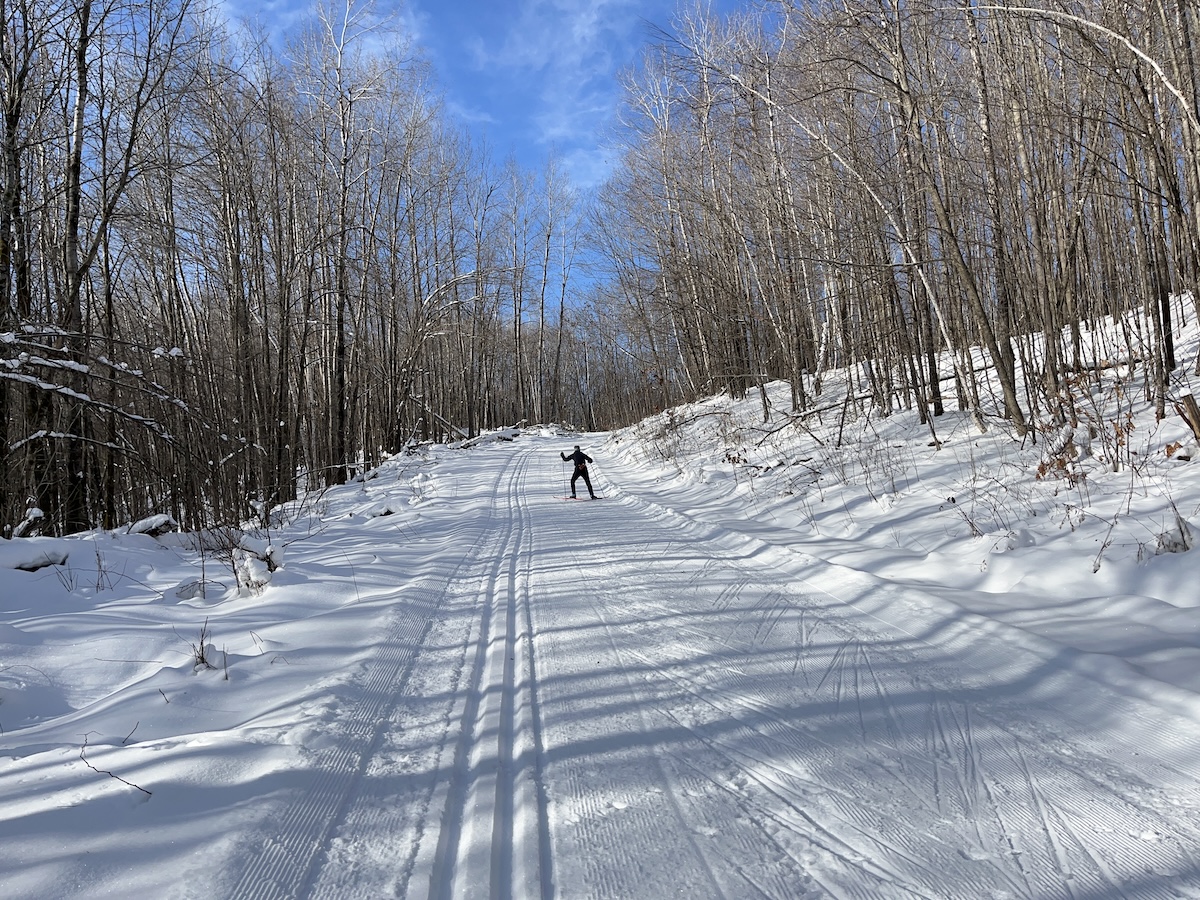
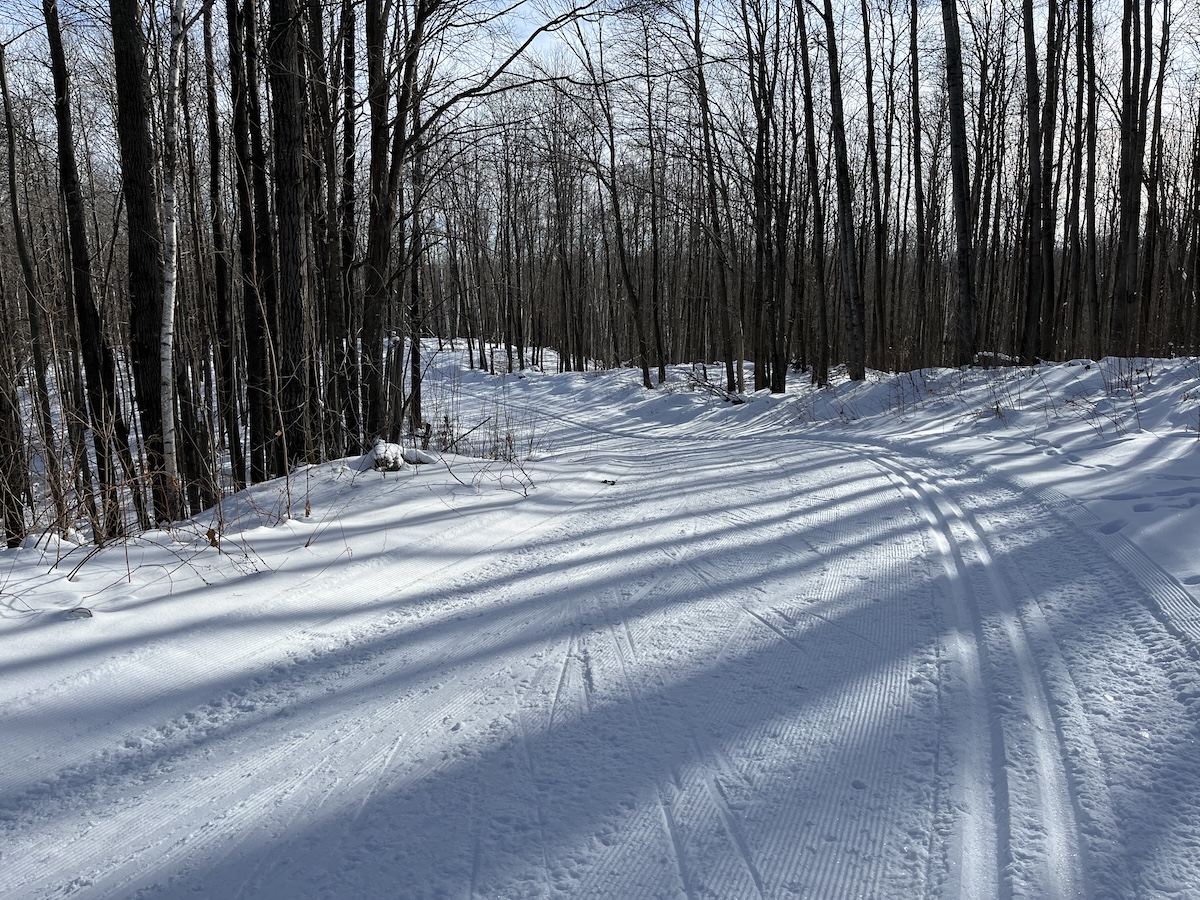
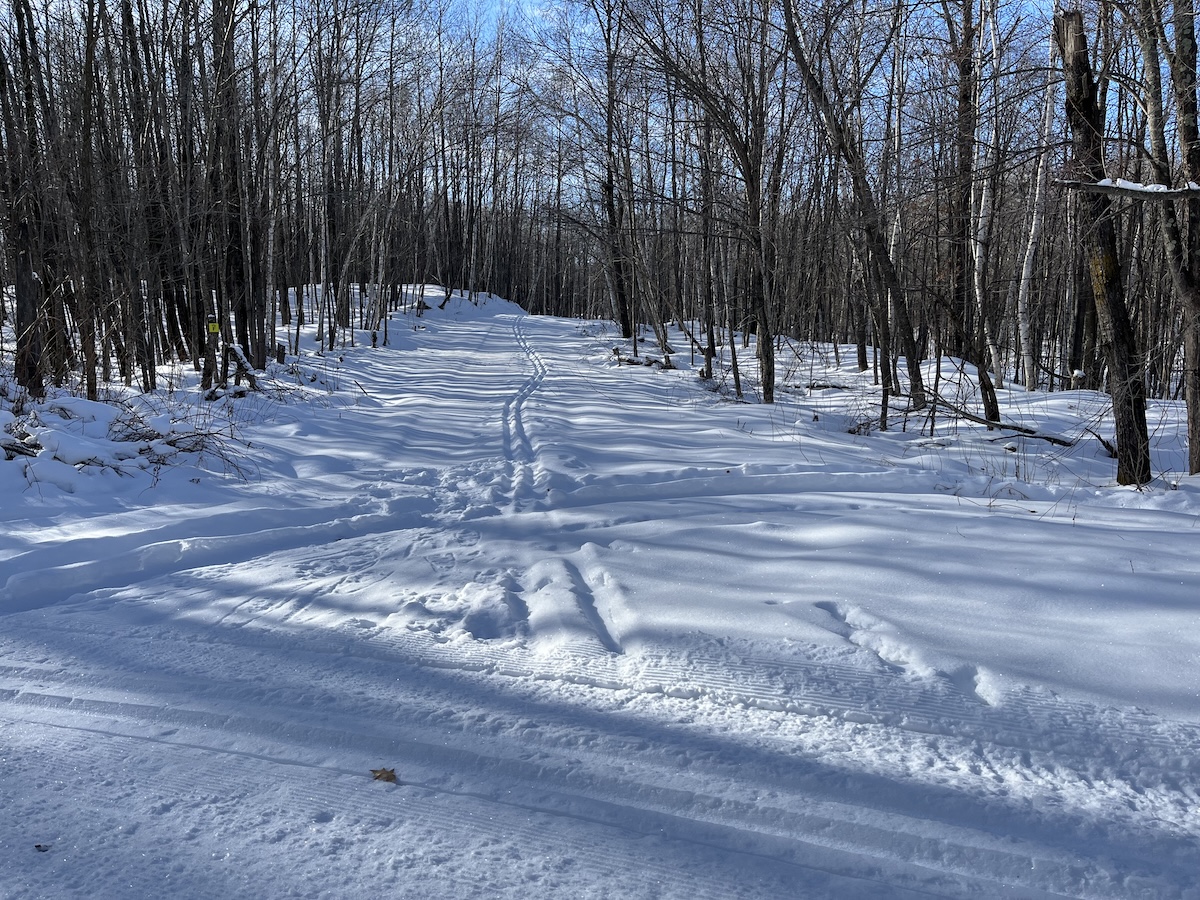
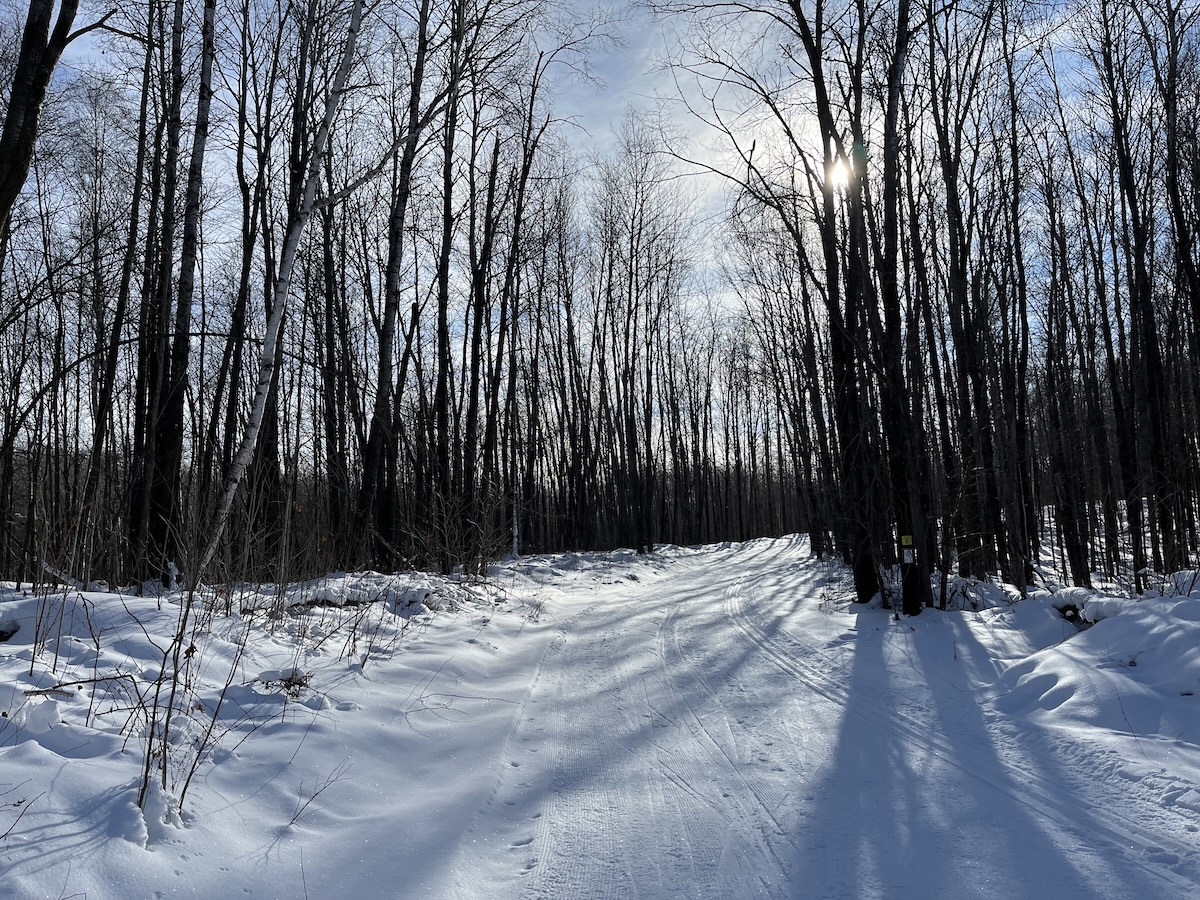
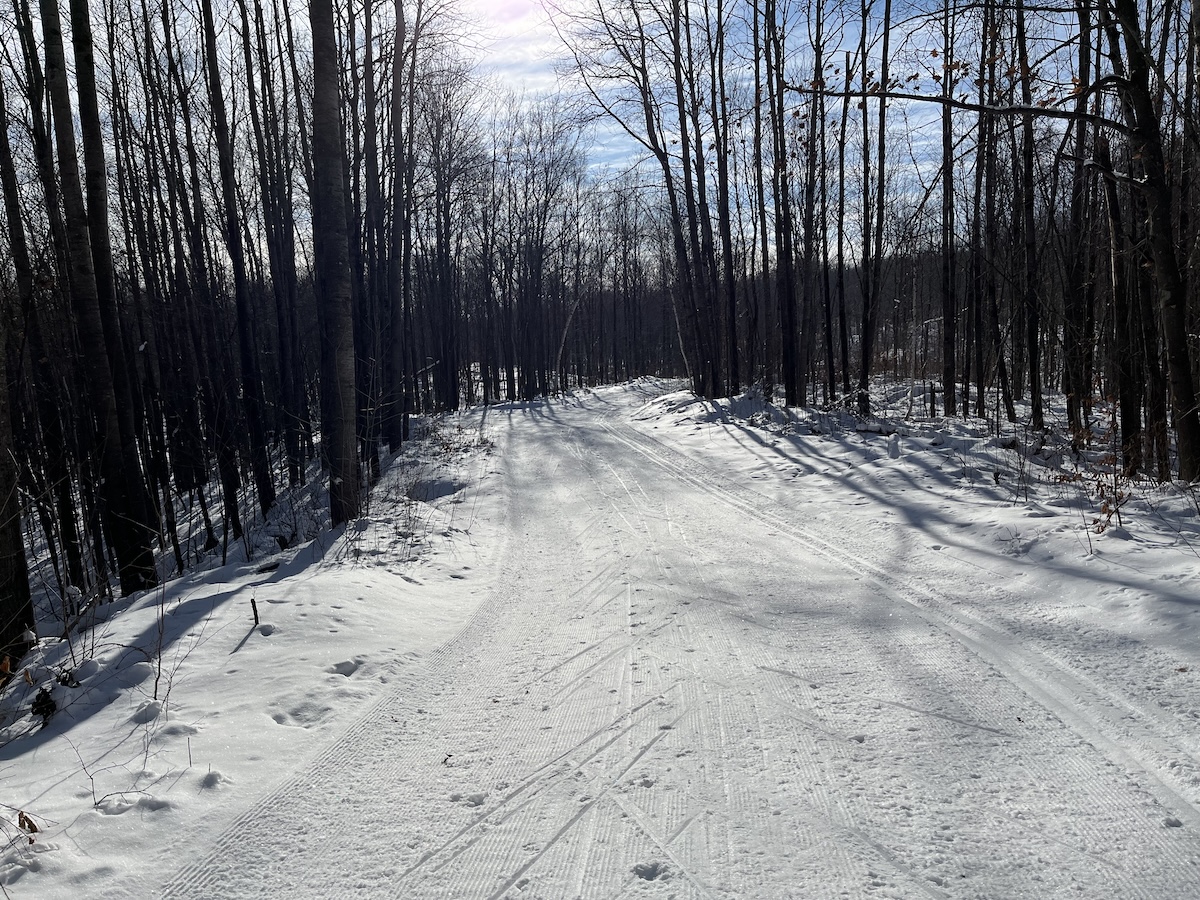
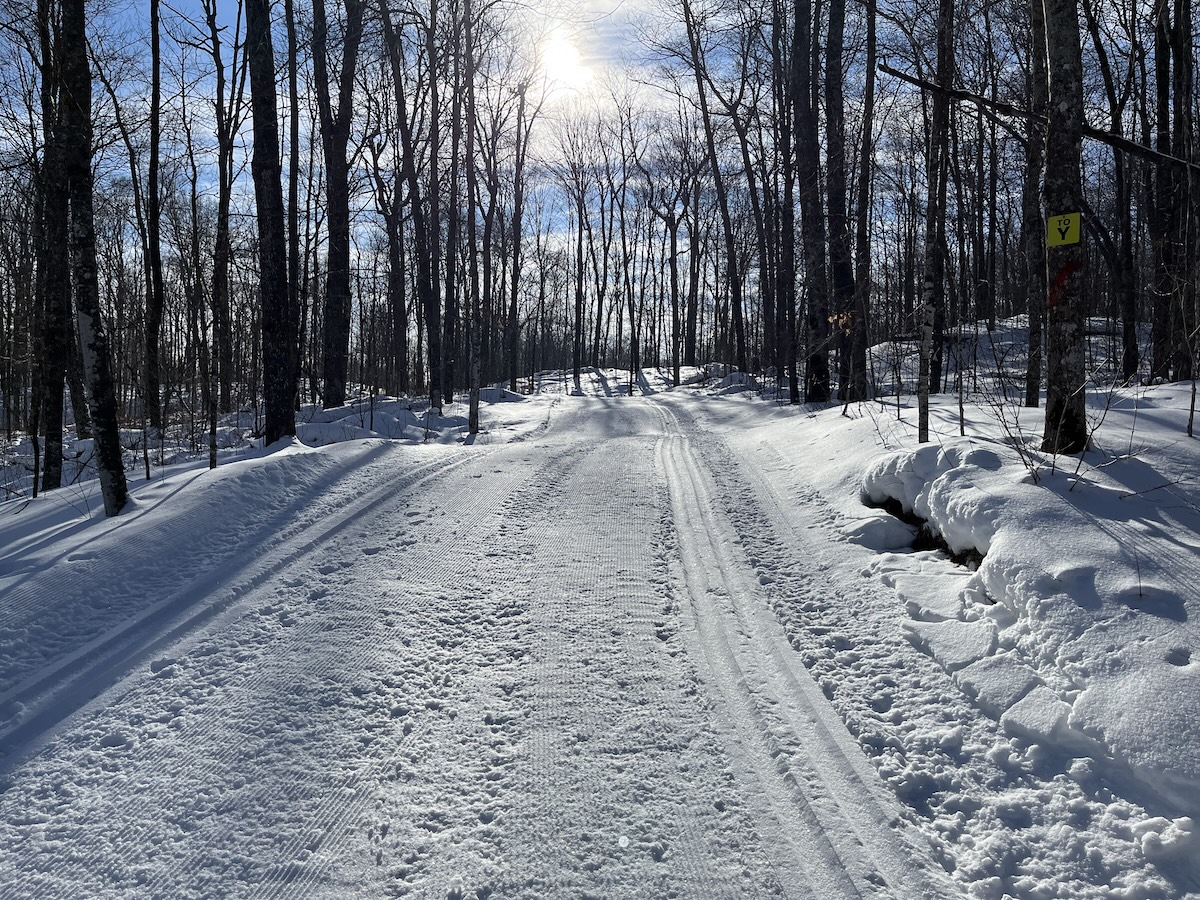
December 21st is the solstice: it's winter in northwest Wisconsin. And this year (unlike the previous two winters) we have snow!
Since Thanksgiving, temps remained below freezing until just the past few days. As a result, weather systems have deposited snow instead of rain. And for a change, we've been able to ski in early December. That's a welcome contrast to those of us that look forward to traveling on skis.
Following is a series of photos showing cross country skiing conditions on the Blue Hills Trail (northwest Wisconsin) in the past few weeks. Come join the fun :-)
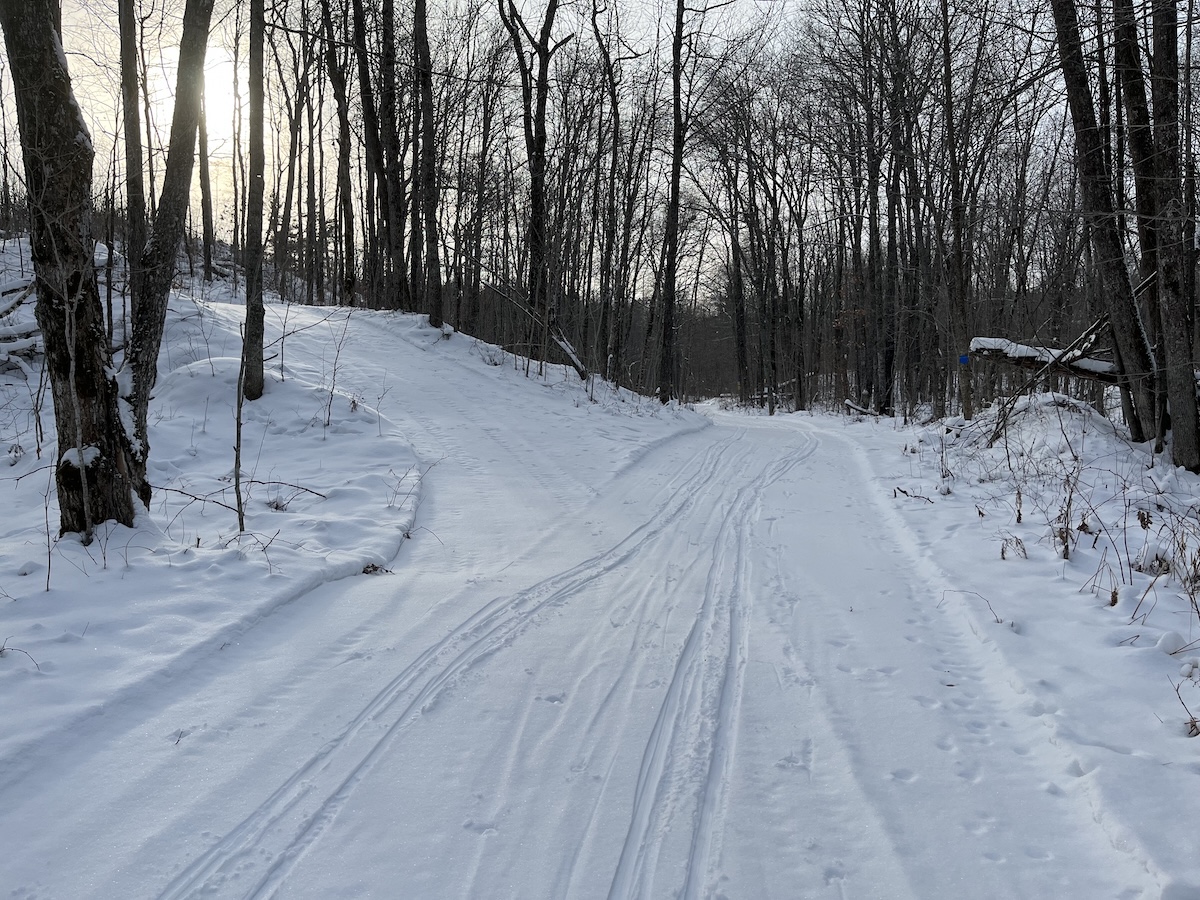
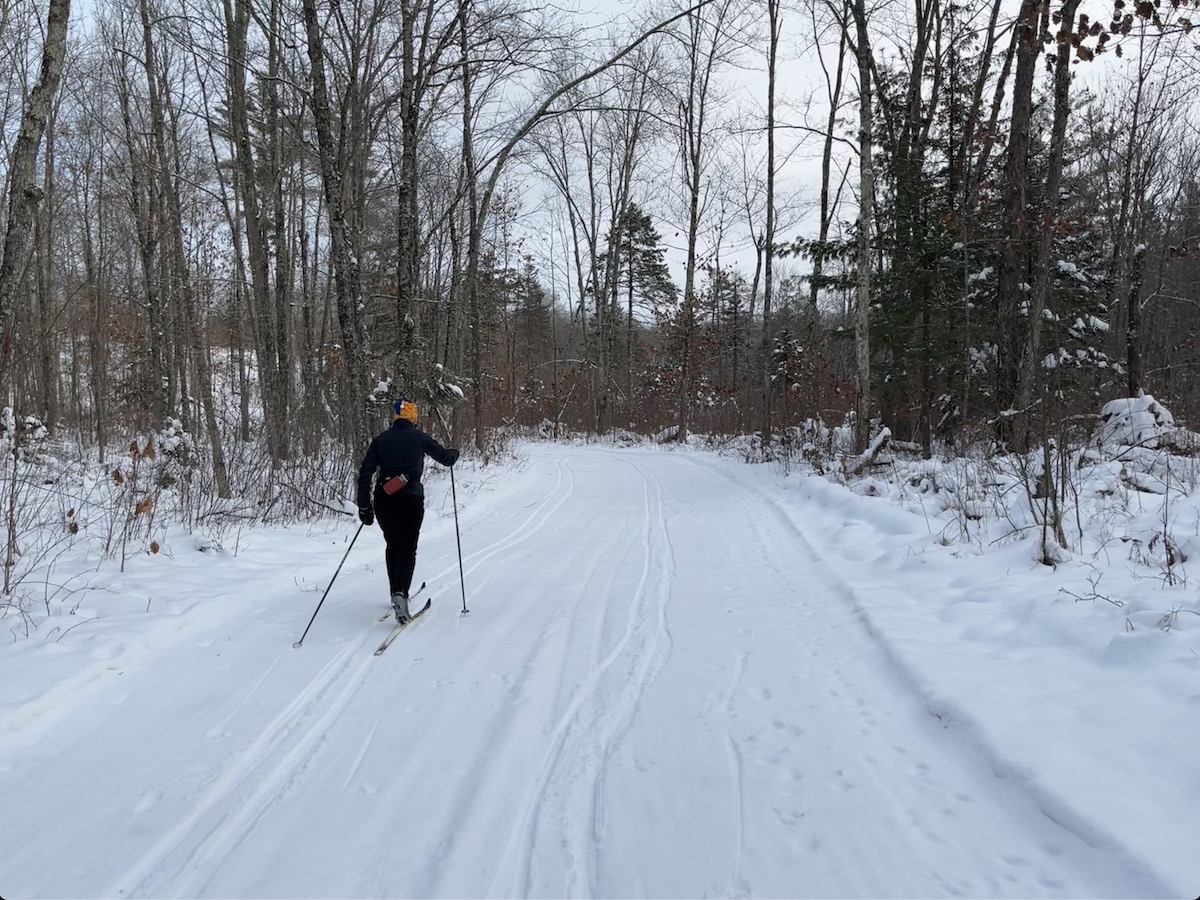
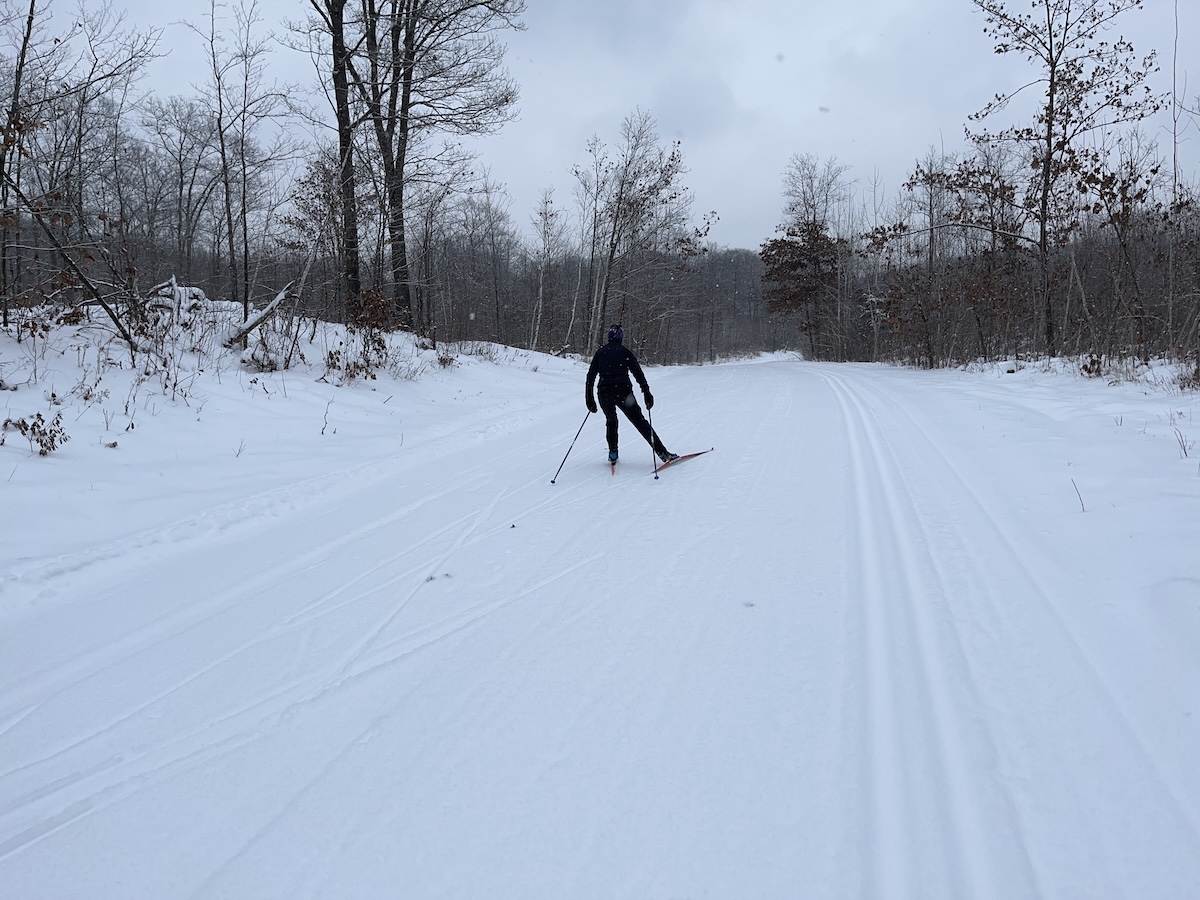
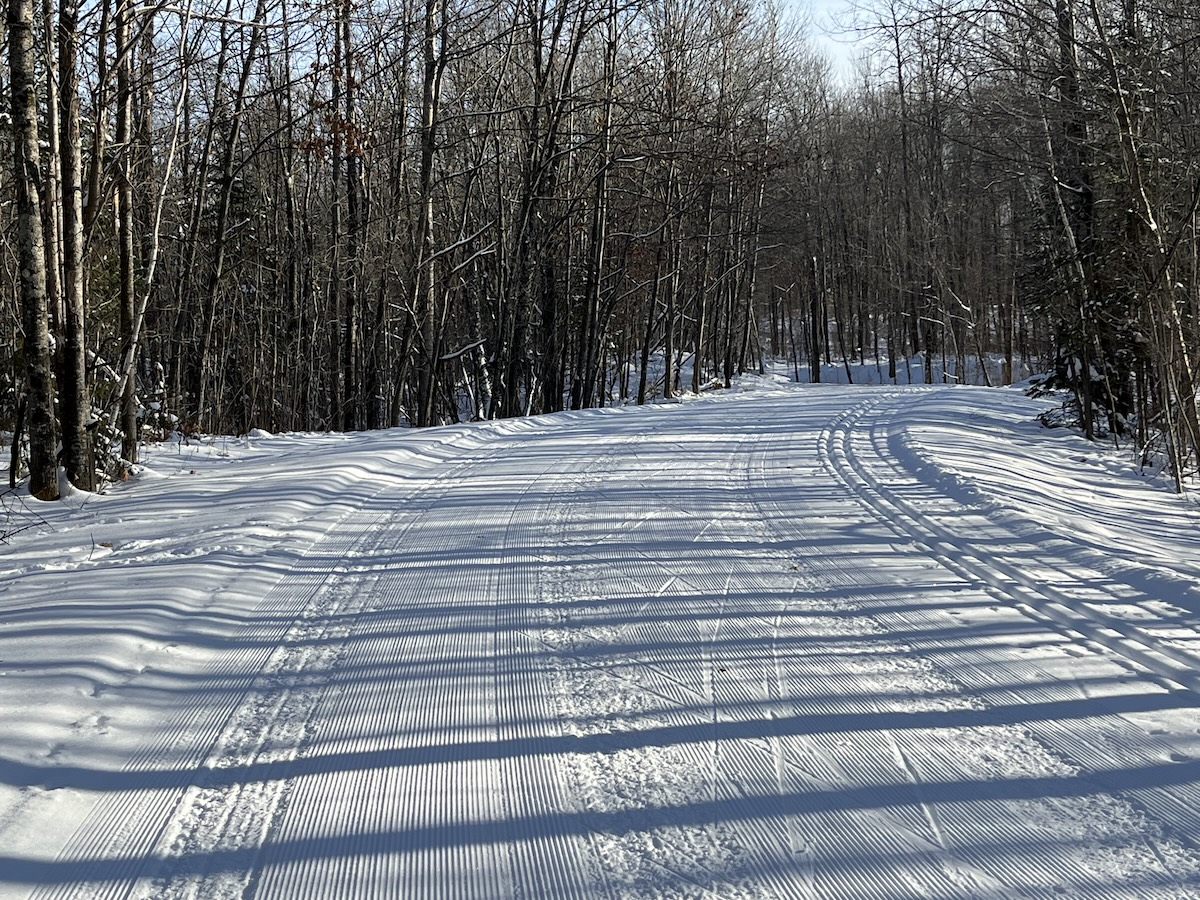
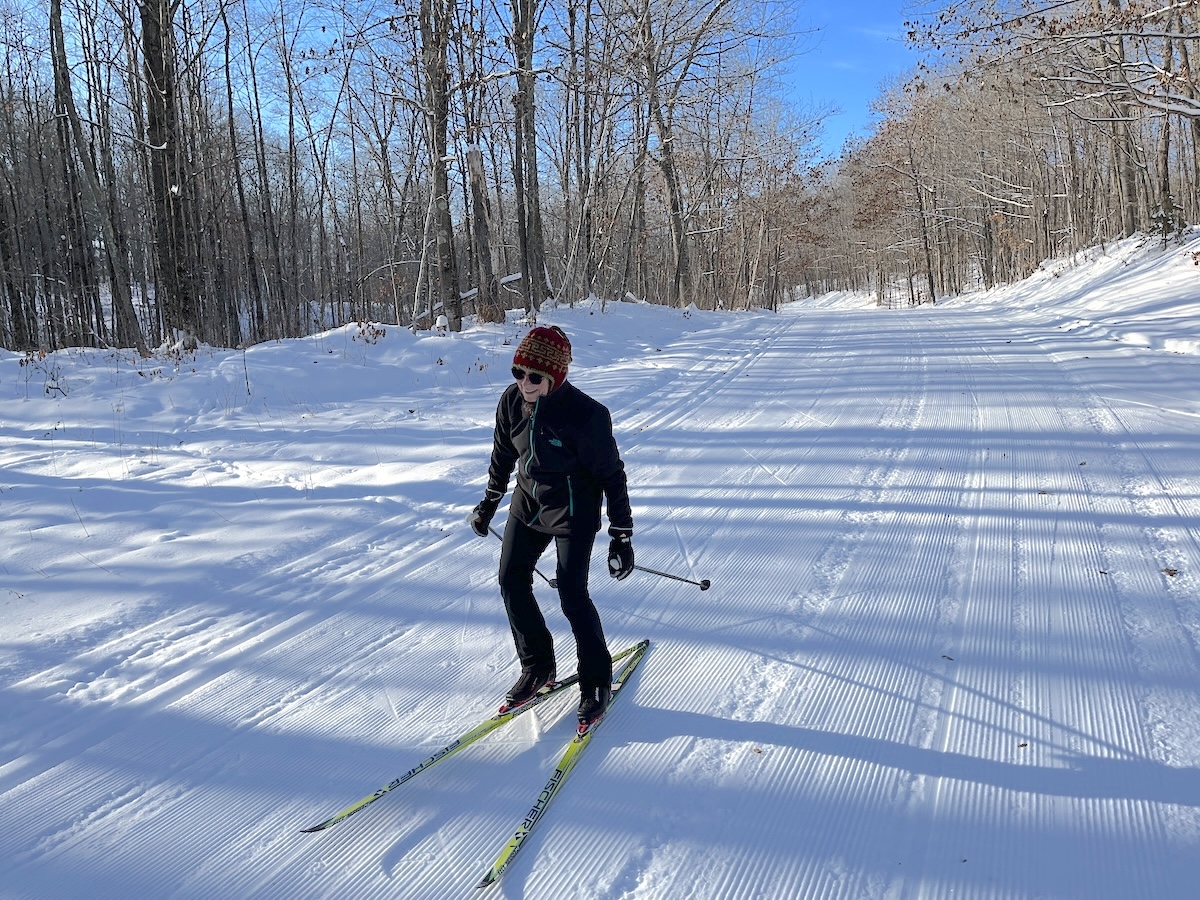
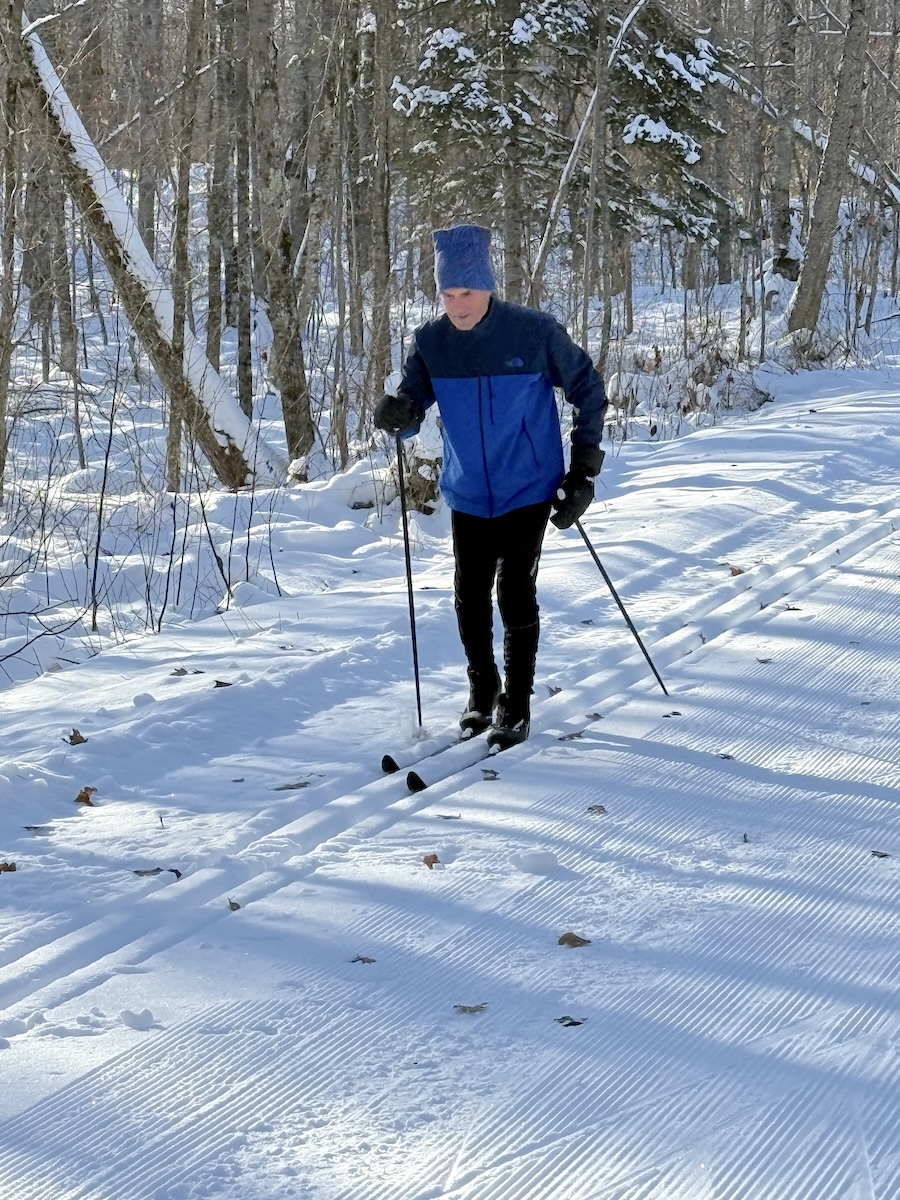
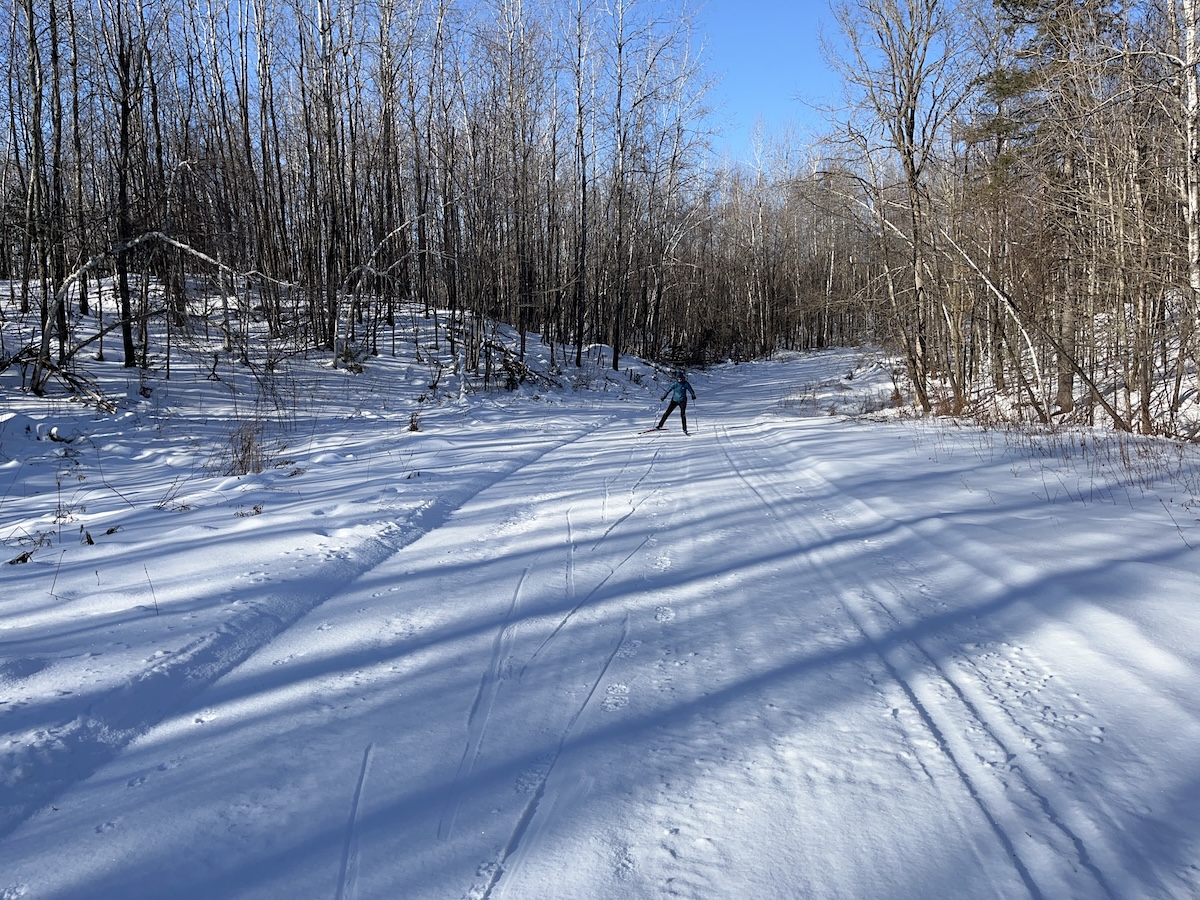
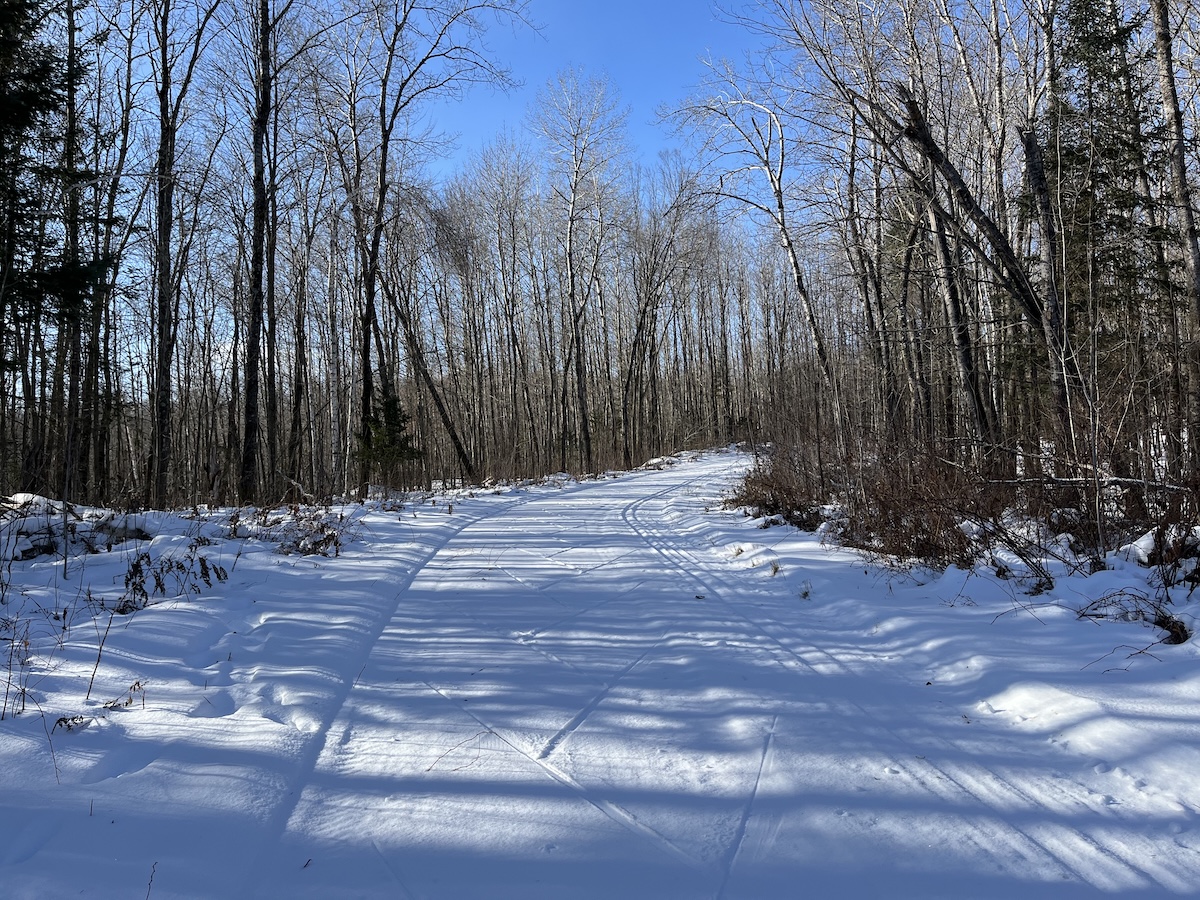
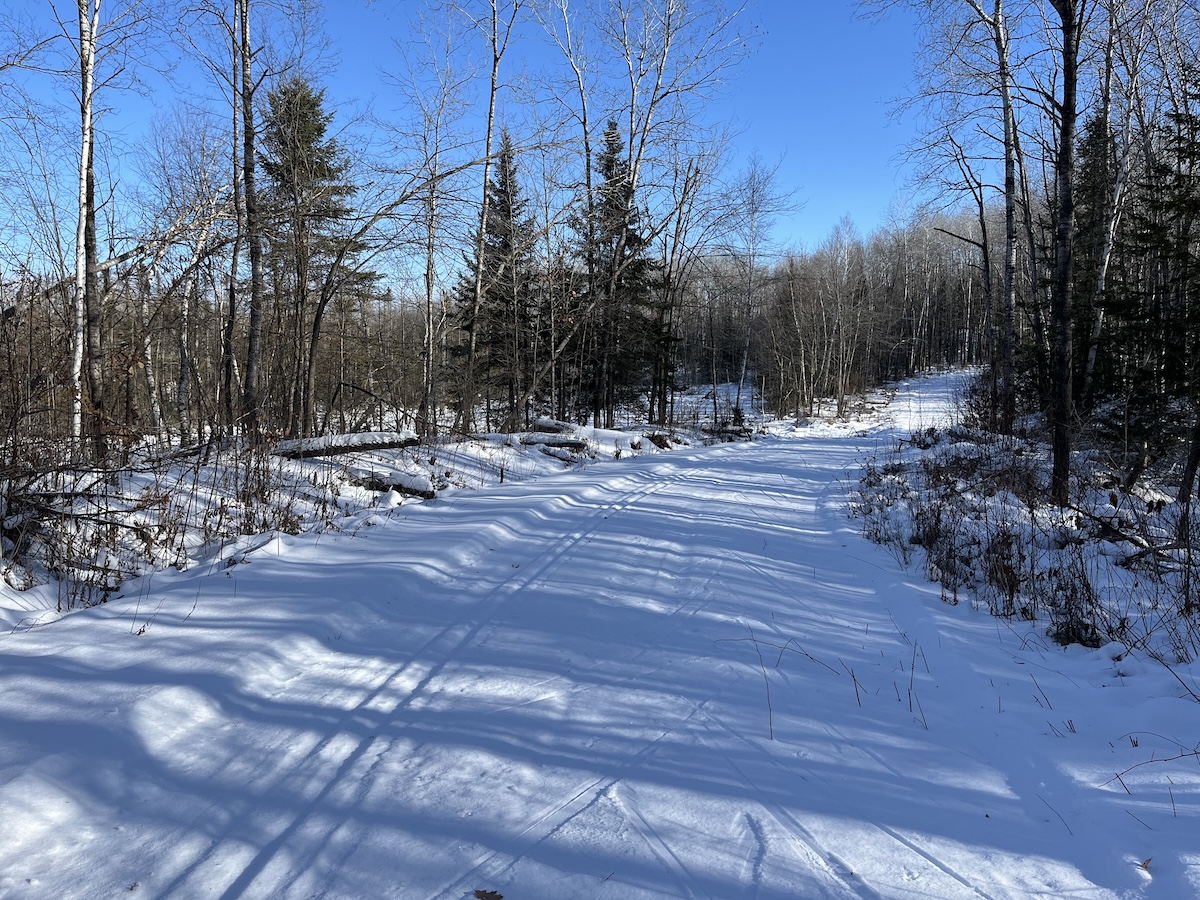
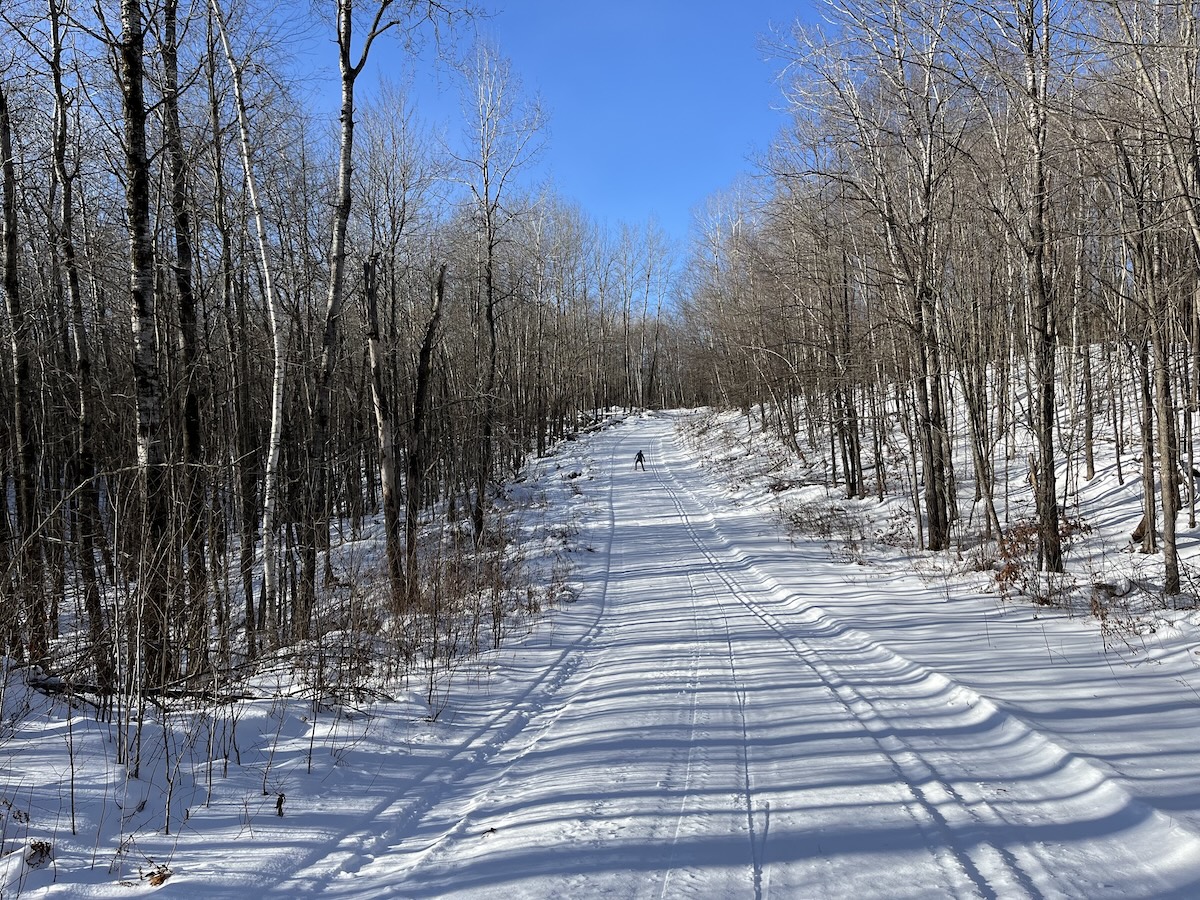
After two winters (2023-24 & 2024-25) that were oh so disappointing, we now have the polar opposite - an early start to winter. With 6+ inches of fairly dense snow the past week, grooming was initiated the afternoon of Sunday, November 30th. More grooming was performed the evening of Monday, December 1st; and again midday on Tuesday, December 2nd. This early season grooming has been limited to the use of a roller/comb to produce a corduroy surface. The goal is to knock the air out of the snow, allow cold temps to penetrate and freeze the underlying trail surface, and create a skiable corduroy surface.
Points worth noting...
- The heat's on in the warming house. Enjoy :-)
- With 6-7 inches of workable snow, a roller was used to groom (pack) the snow and create a corduroy surface on all the East Side trails the past few days. The Core Loop is the firmest, the other side trails on the East Side are softer but certainly skiable. Beginning with 6-7 inches of workable snow, the grooming created pretty good cover of the grasses, rocks, etc. The groomed trails have a 1"-2" thick base. Use your ''rock skis' or 'B skis' until there's a deeper base.
- There's not enough snow to set a classic track. But there's decent striding without a formal track. Typical of early season skiing, the surface is irregular and you need to approach downhills with extra caution.
- During the past 6 months, we've spent a lot of money (~ $60,000!) upgrading our equipment. And a lot of time prepping the trails for skiing. Please support us by taking out a membership and/or donating. If unsure of your current status, click here for a list of our current members.
- Remember to wear blaze orange during the remaining December deer hunts (muzzleloader season is December 1-10; antlerless hunt is December 11-14). There usually aren't a lot of hunters in the woods during the next 2 weeks, but please play it safe.
- Our snowshoe trails await you. Folks have been out stomping the snow already.

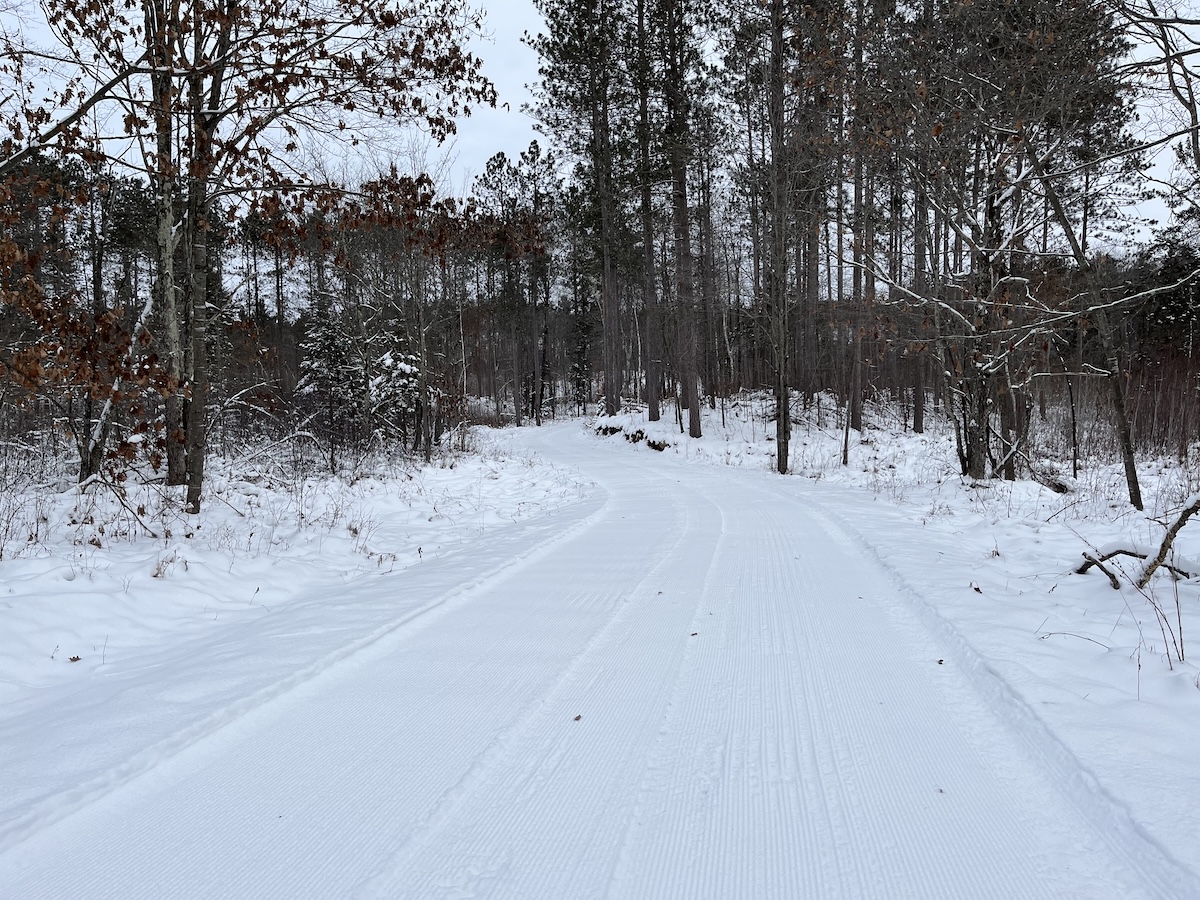
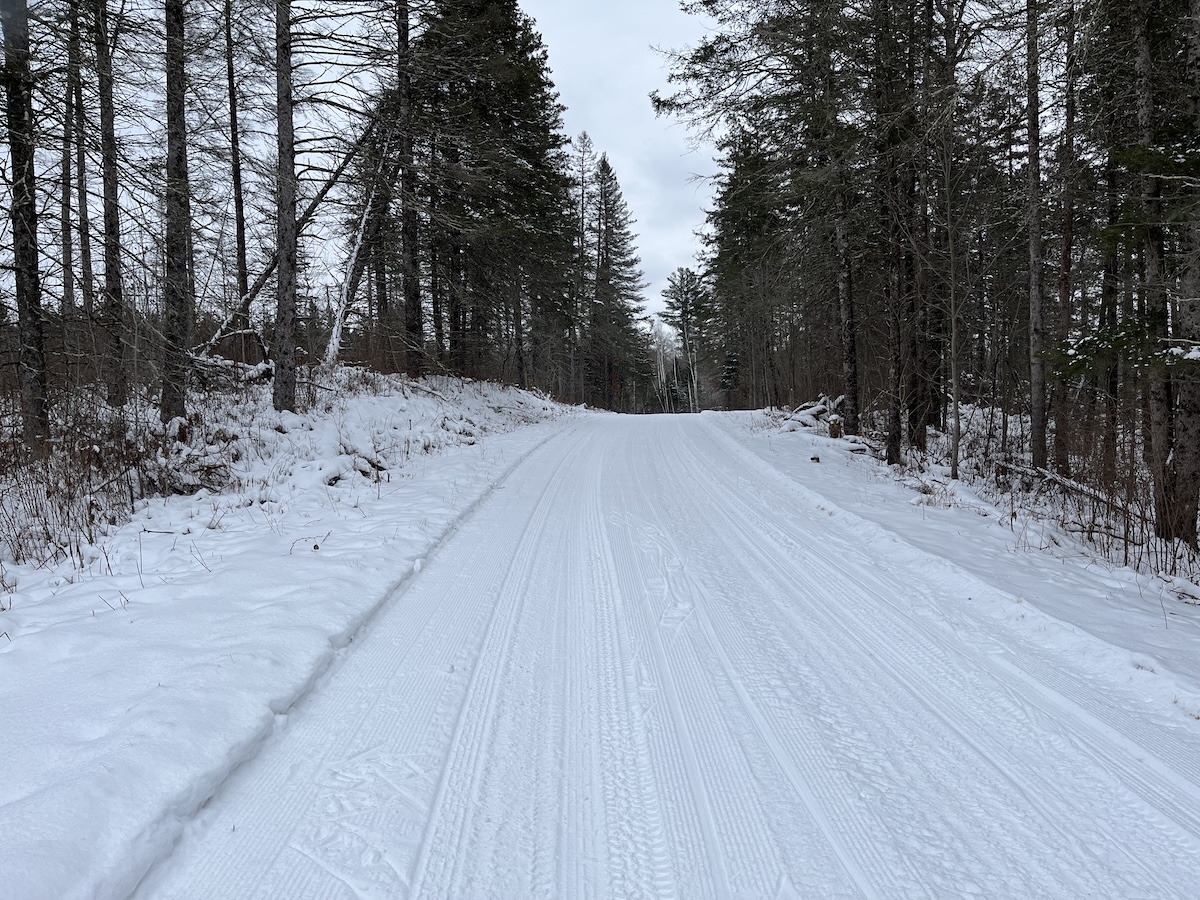
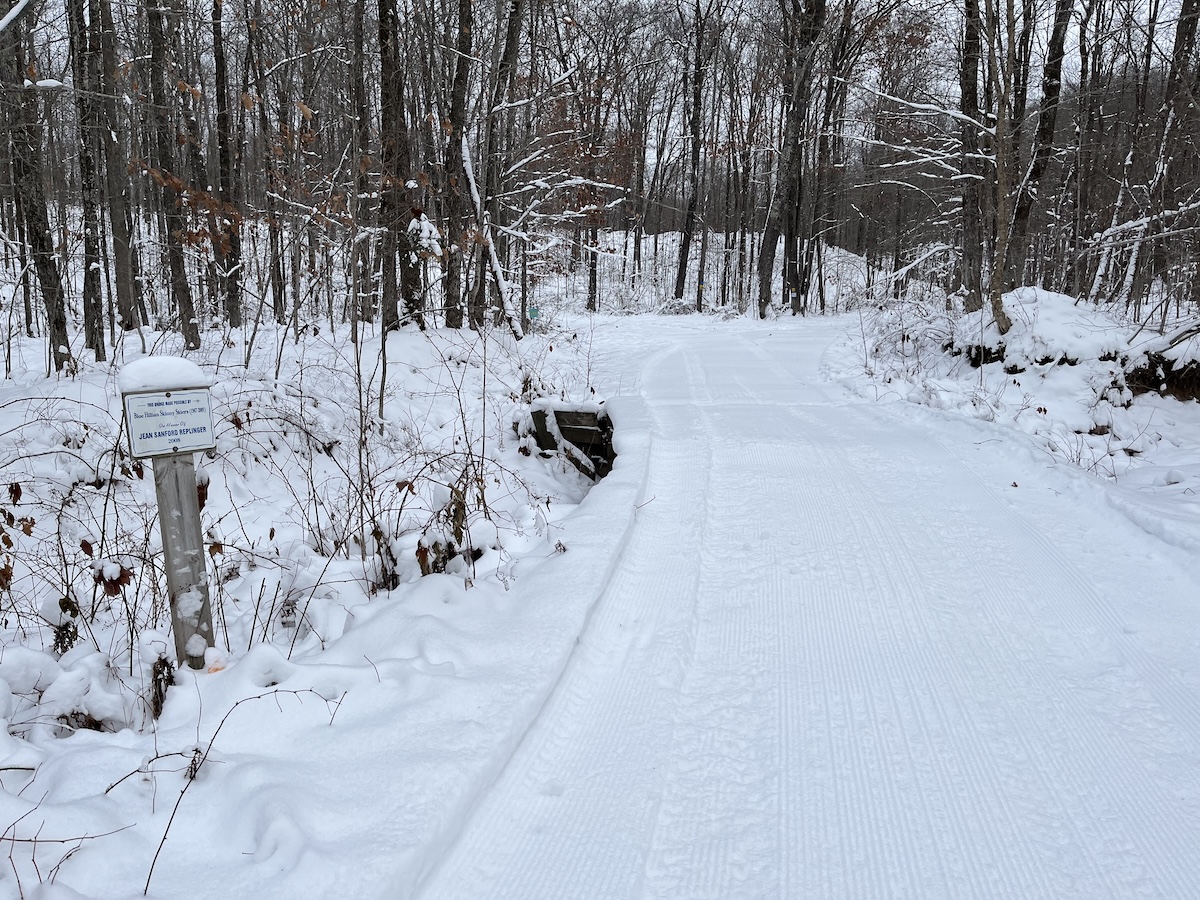
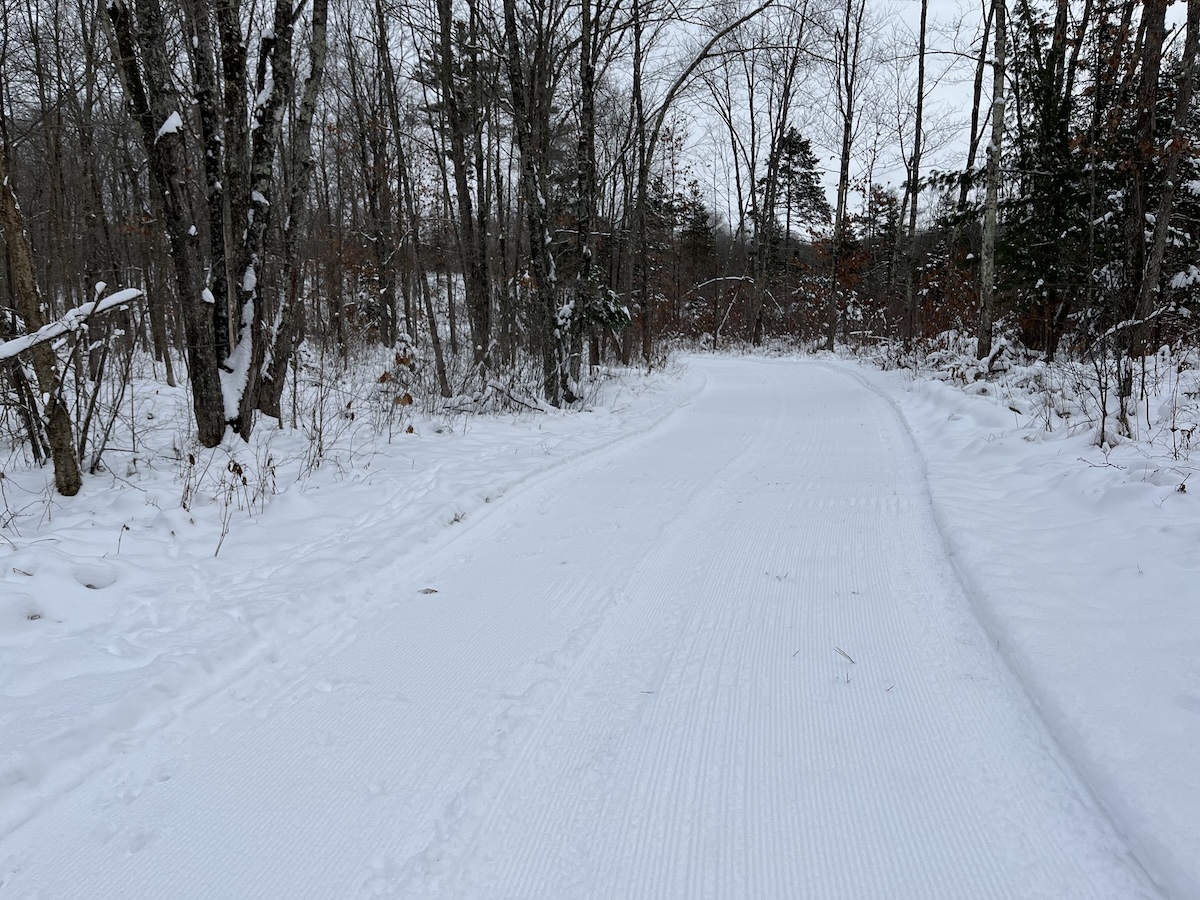

Thanks to everybody that helped during our annual Work Day on September 27th!
Here's a list of our eager volunteers : Heidi A, Rose A, Carolyn C, Dominic H, Jan P, Tom P, Geary S, Bob L, Bill R, John W, Kevin W, Amanda W, Bob W, and John Z.
We enjoyed gorgeous weather and good fall colors as we picked rocks, threw branches, removed logs -- generally getting the trails ready for our favorite time of the year: winter x-country skiing! We probably totaled about 50 human-hours of labor and camaraderie.
If you weren't able to help on the designated work day, we have some leftovers for you. When out hiking this fall -- feel free to throw a few rocks off the trail, perhaps clip some encroaching branches, and remove new windfalls. Please contact our website if you find tree falls that need chainsaw removal.
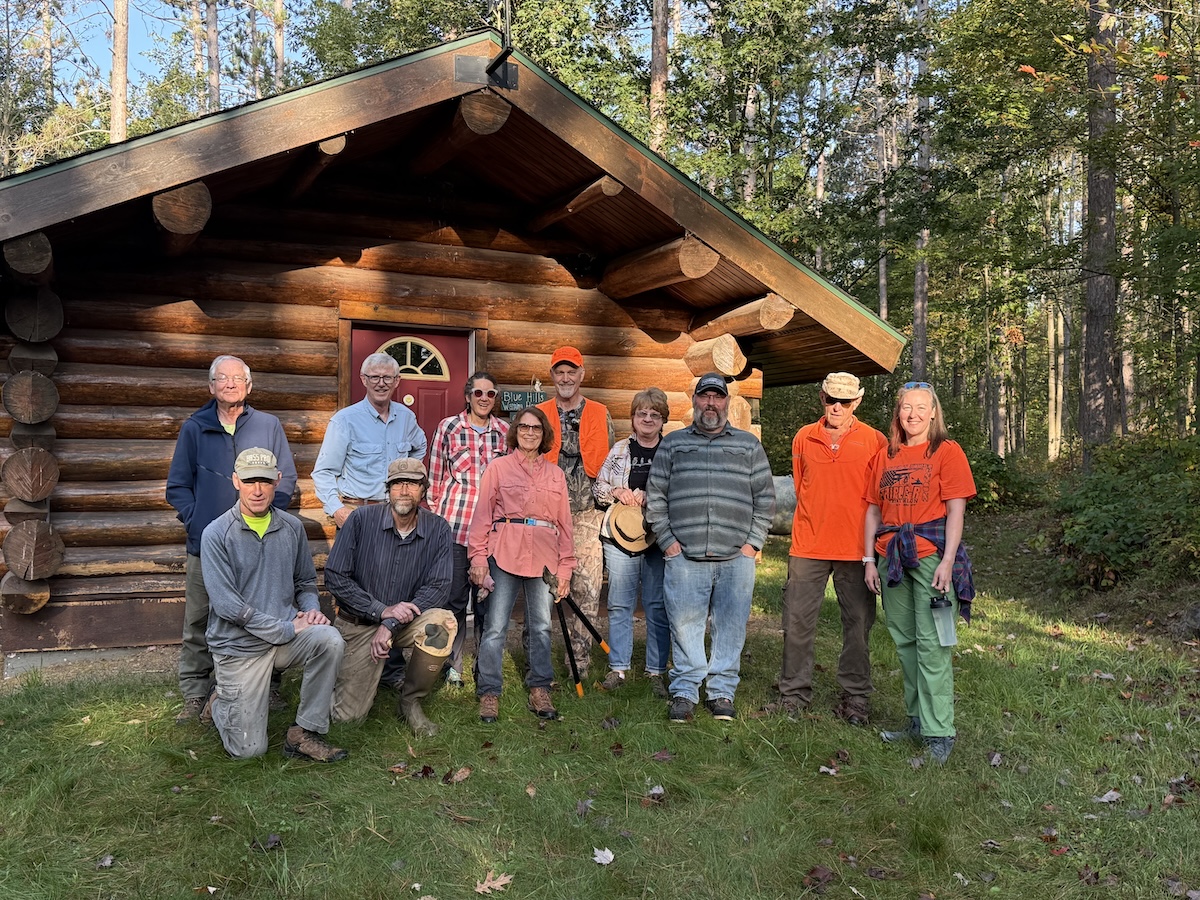
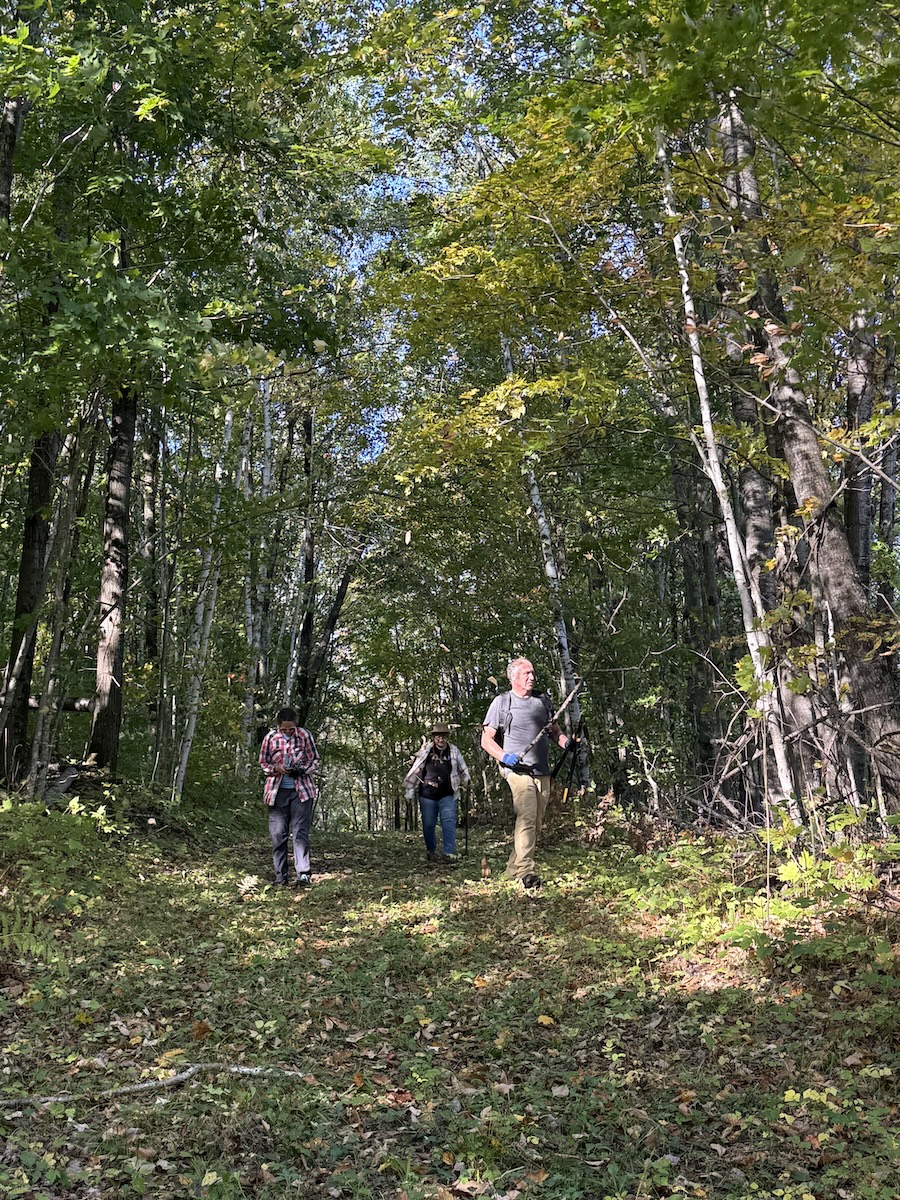
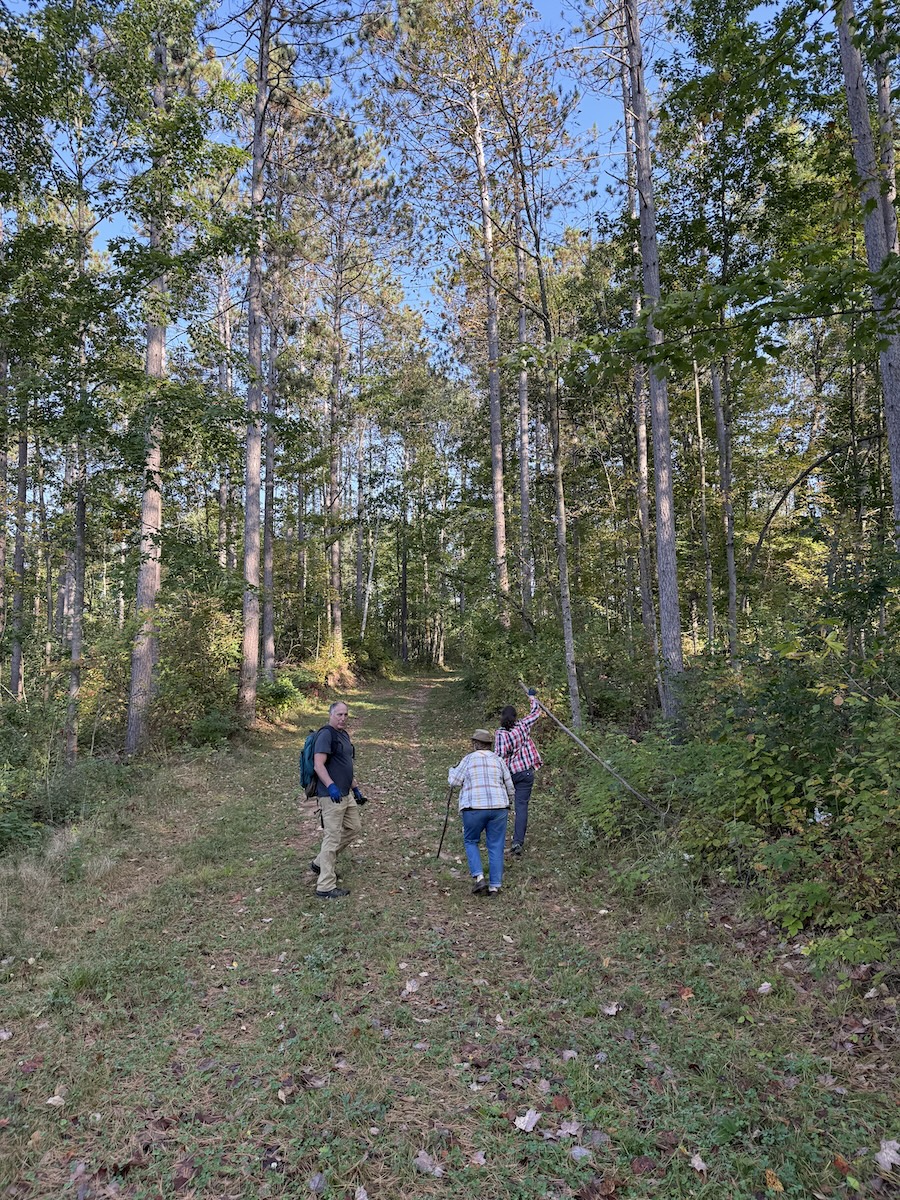
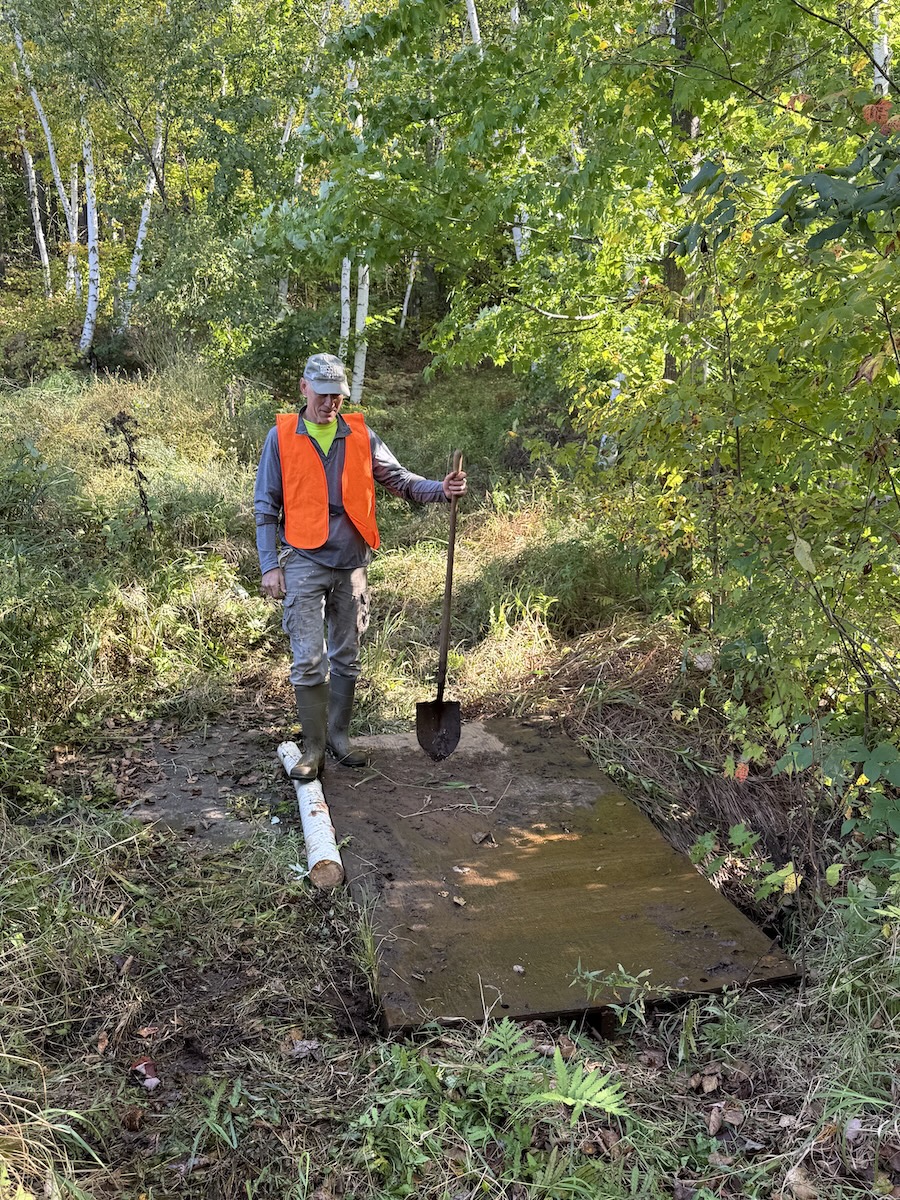
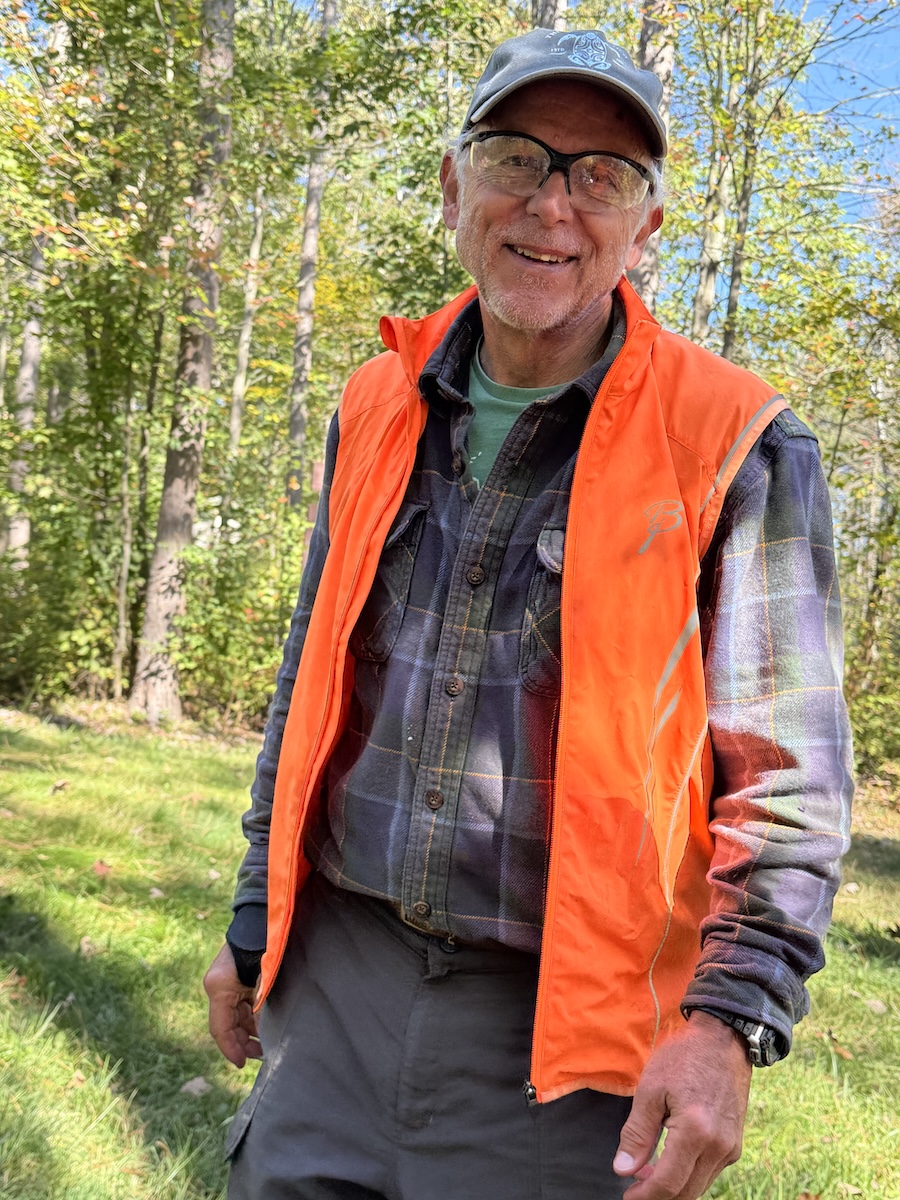
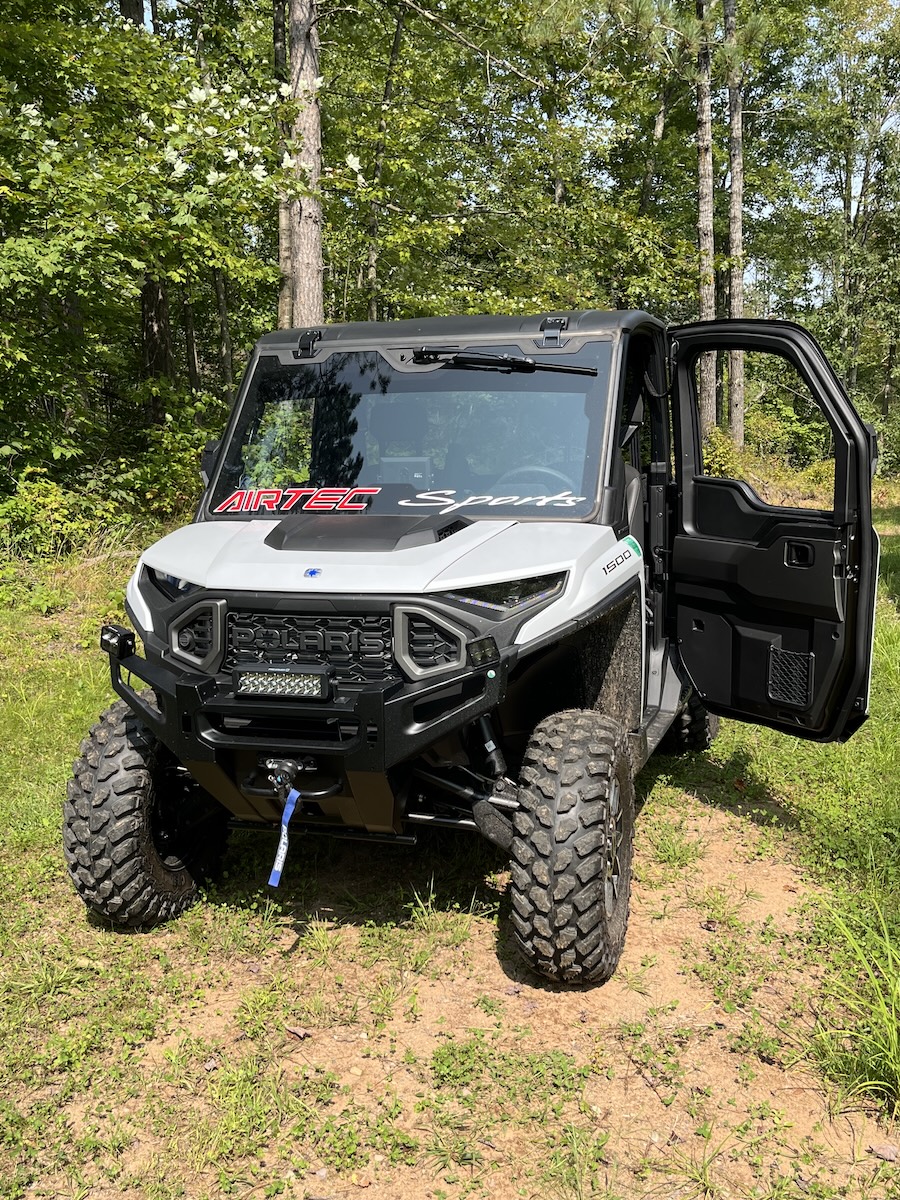
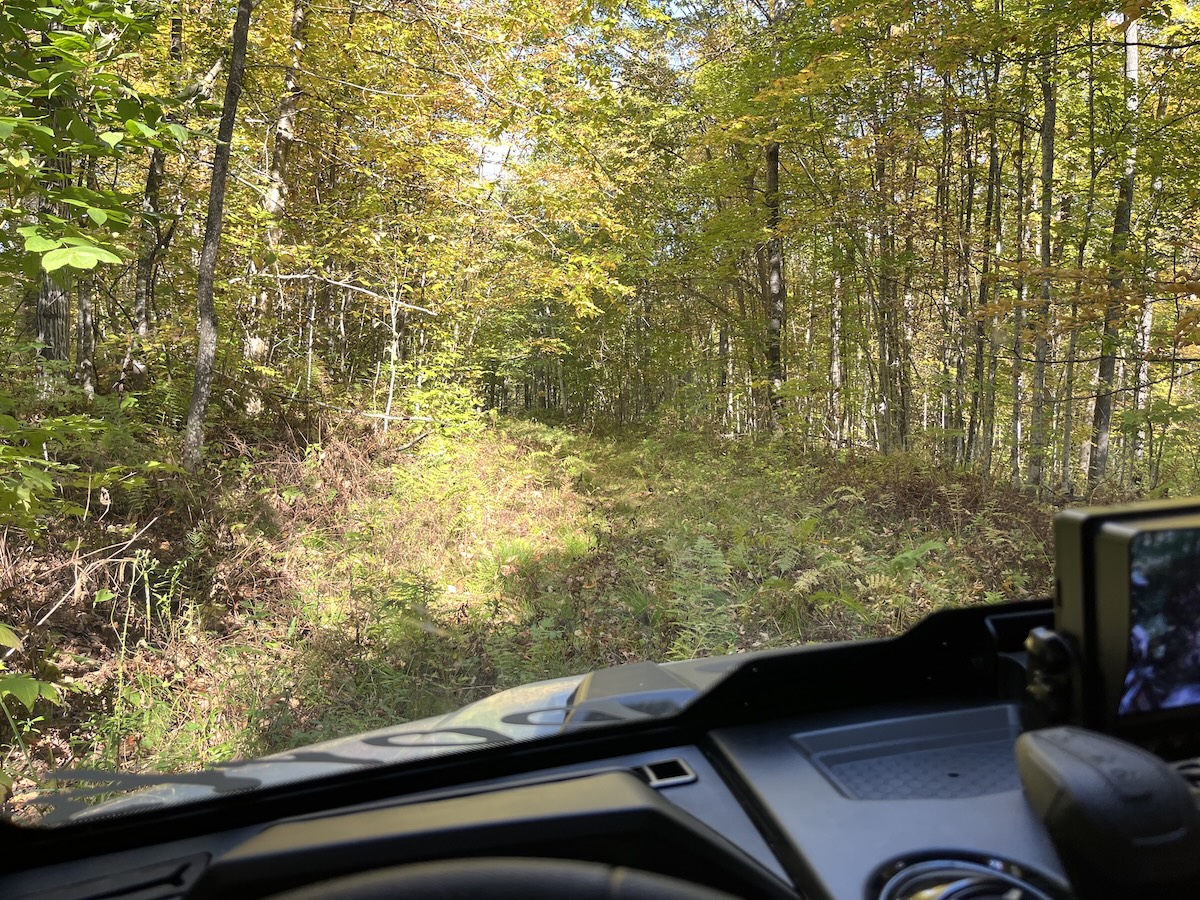
The Blue Hills Trail Association (BHTA) started our summer trail mowing on June 18th. The map (below) shows the trails mowed as of June 18th. Mowing is accomplished in stages during the months of June/July/August. For an updated mowing report and map, visit our website and click on the 'Trail Conditions' link at the top of the page, then scroll down to the 'Mowing Report'.
Background Details:
- We have 22+ miles of trail that need mowing.
- Our crew of mowing volunteers usually mows a total of about 50 hours each summer.
- Prior to 2003, the Rusk County Forestry Department mowed the entire trail system. They were using a tractor with a deck mower -- and the tractor often created deep ruts that negatively impacted the goal of a smooth trail surface.
- In 2003, we (BHTA) purchased a trail mower to be towed behind an ATV so we could mow the softer trail segments. Even that was less than ideal, still leaving tire ruts that later needed repair.
- In 2014, we switched to mowing using a John Deere Gator on tracks. That's when we organized a trail crew to handle the mowing. Using tracks on the soft trail segments has greatly improved the trail surface when it's time to start wintertime grooming for skiing.
- At this time, the Rusk County Forestry Department mows the driest trail segments with their heavier equipment, this amounts to about 1/4 of the trails.
- The Blue Hills Trail Assn mows the remaining 3/4 of the trails using our 2020 Honda Pioneer (with tracks) pulling our AcrEase Trail Mower that cuts a 57" width.
- The 2003 mower was replaced in 2012 with an updated model; and in 2021 we replaced the 2012 engine with an upgraded Briggs & Stratton engine that is working well.
- Mowing typically begins in late June, and our goal is to complete the bulk of the mowing by mid August.
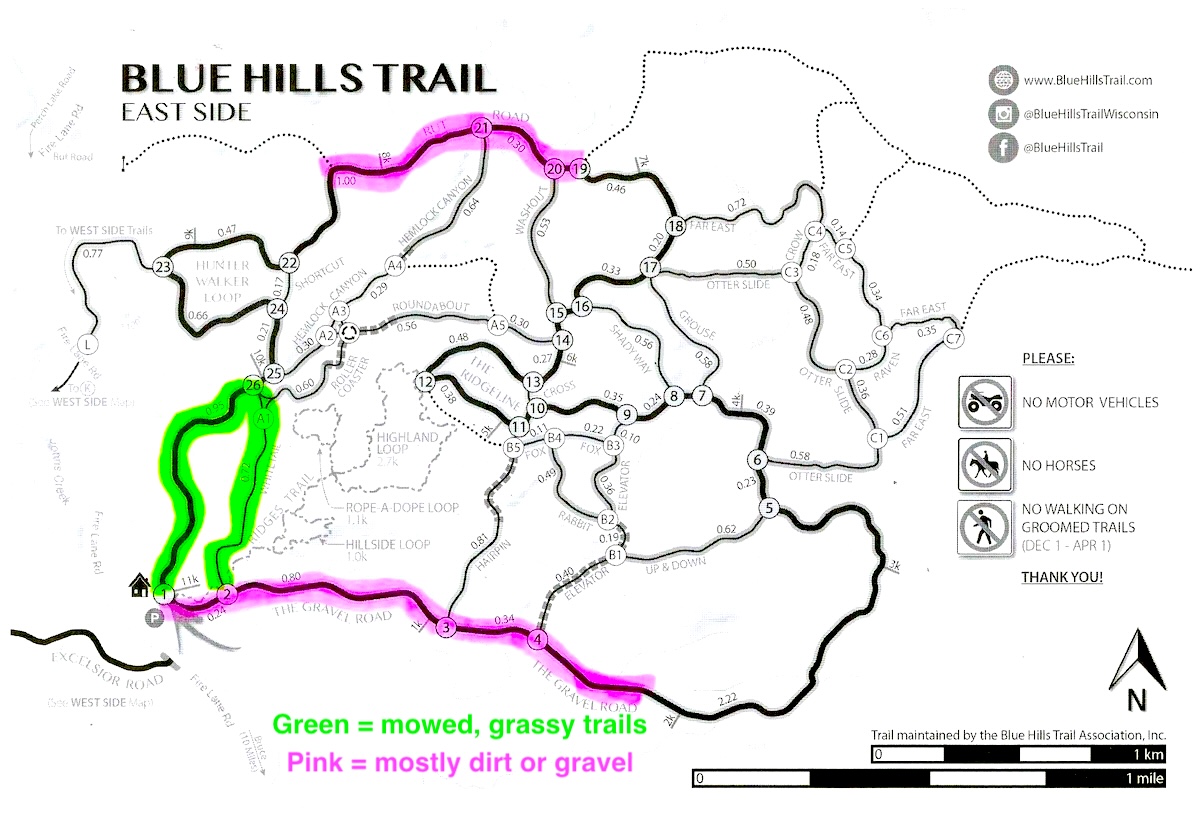


Winter. Welcome Back, Don't Be A Stranger.
At last -- a few days of fantastic skiing! This winter (2024-25) started late, was far too dry, and now is ending early. Hurry back my friend, but try to be on time.
Cross country ski conditions this morning (Sunday, February 23rd) were fantastic on the Blue Hills Trail in northwest Wisconsin. Temps started at 23 degrees F, rose above freezing for the first time in 3 weeks, and later in the day hit the low 40s. During the past week, timely grooming of the packed powder and sugar snow surfaces made for wonderful skate or classic skiing this morning before the predicted warmup moved in later in the day. Quite a contrast to the minus 30F windchills a few days earlier.
Enjoy the following photos showing the beauty of the Blue Hills Trail cross country ski trails in northwest Wisconsin -- taken February 21 - 23 (2025). As lovely as the pictures are, the skiing was even better. Right click the photos to open in a new window and enjoy the full size image.
If you'd like to help offset our expenses, follow this link for donations and annual memberships.







It's been almost two years since we've had enough snow to boast of good conditions for cross country skiing in northwest Wisconsin at the Blue Hills Trail. After warm temps and rain produced a total meltdown in late December 2024, a very dry January 2025 was almost as discouraging as the 2024 January/February record warmth that kept us from enjoying any semblance of wintry weather a year ago. If interested, follow this link to view local snowfall data from the past 25+ years.
Come on out and Ski the Hills! In the past couple weeks, we've received enough snow and cold weather to once again enjoy cross country skiing in the beauty of winter in the Blue Hills of northwest Wisconsin. Take a look at the following photos taken while skiing on a lovely blue sky day at 20 degrees F on February 20 (2025). All these photos were taken on the East Side of the Blue Hills Trail.
If you'd like to donate to help offset our costs, follow this link.











January 17th: it's been another very dry start to this winter of 2024-25. 4" of snow prior to Christmas 2024 before that disappeared during a rainy warmup; and only 3+ inches since. Here's a link to 25 years of local snowfall reports.
The 3+ inches of snow that fell January 12th made our groomers happy. They gave it a try, and rolled (packed) the East Side of the trail system, creating a corduroy surface. Unfortunately, there wasn't a lot of moisture in that snow, and the resultant base is very thin. Most of the groomed trails have grasses showing, and underlying rocks or dirt spots that might catch your skis. But NOTE: we're lucky to have one short section of trail that is offering 'OK' skiing: the 'Gravel Road' has just enough base to conceal most of the rocks. On the East Side map, this is the section from 1-2-3-4 plus a 1/2 km beyond intersection #4. Be sure to use your rock skis on any of the trails, and use extra caution knowing that it's likely you'll find an occasional rock that can throw your balance.
The West Side trails are ungroomed and have about 3 inches of snow that you can explore. Once again, be aware that there is no underlying base -- so it's likely you'll discover some hidden rocks and dirt spots. Enjoy the little snow we have. And hope for a nice snowfall in the near future.


Post Categories
Blue Hills Trail
instagram updates
Subscribe to Newsletter Updates
Stay in-the-know about grooming updates, special events, news, announcements, volunteer days, and more. Rest-assured, we never sell or share your information.


